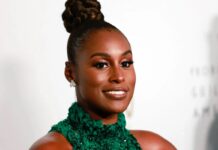Young adult authors of color are fed up with being targeted.
They’re sick of seeing their books bogusly labeled “critical race theory” or “anti-police.” They’re incredulous at claims their words make kids uncomfortable. They’re done seeing their books challenged or banned over what they see as insincere claims about vulgarity, violence or sex. They’re exasperated with feeling singled out.
Groups that monitor censorship, including the ACLU, PEN America, American Library Association and the National Coalition Against Censorship, say it’s more than a feeling. Since the killing of George Floyd, a Black father, by a White police officer, experts see Black and brown authors increasingly becoming the quarry of would-be censors, they say.
“The frank and difficult stories of being Black in America” are coming under fire, said NCAC spokesperson Nora Pelizzari.
“It’s pure censorship of ideas and viewpoints, which I would argue should not survive constitutional scrutiny, but we’re living in odd times these days,” added Deborah Caldwell-Stone, a former lawyer who now directs the ALA’s office of intellectual freedom.
While the ALA says half of the 10 most challenged books of 2021 were targeted for LGBTQ content — another worrying phenomenon that intellectual freedom fighters say isn’t to be downplayed — the organization also saw a record number of challenges, many of them aimed at authors of color exploring history, racism or their own experiences in America.
In April, civil rights activist Ruby Bridges — whose children’s book about integrating a New Orleans school has been targeted — told a US House subcommittee investigating book bans, “Our babies — all of them — need to see themselves in our books, particularly in school. Representation doesn’t just matter; it’s vital, especially in the pages of the books that we teach from.”
“Out of Darkness” was one of 2021’s most-challenged books, according to the ALA. Its author, Ashley Hope Pérez — a White mother of two Mexican American children who has deep ties to Latino communities — issued a pointed YouTube retort after a Texas mom tried to convince a school board her book was about anal sex. Pérez, 38, suspects the real issue was the interracial love story she weaved through her historical fiction novel about a school explosion in 1930s Texas, she said.
“Somehow when it’s in a book that centers Black or brown or nondominant experiences, it’s problematic, but it’s fine in the Bible or it’s fine in Shakespeare. It’s super incoherent,” she said. “It’s really about targeting groups that have only recently been able to get their stories told, rolling back that progress.”
Authors of color say they’re writing books they wish they’d had growing up. Watching online clips of parents yelling about their work at school board meetings, they often don’t recognize the literature being described. This is what their stories are really about:
Visit www.cnn.com to learn more.















